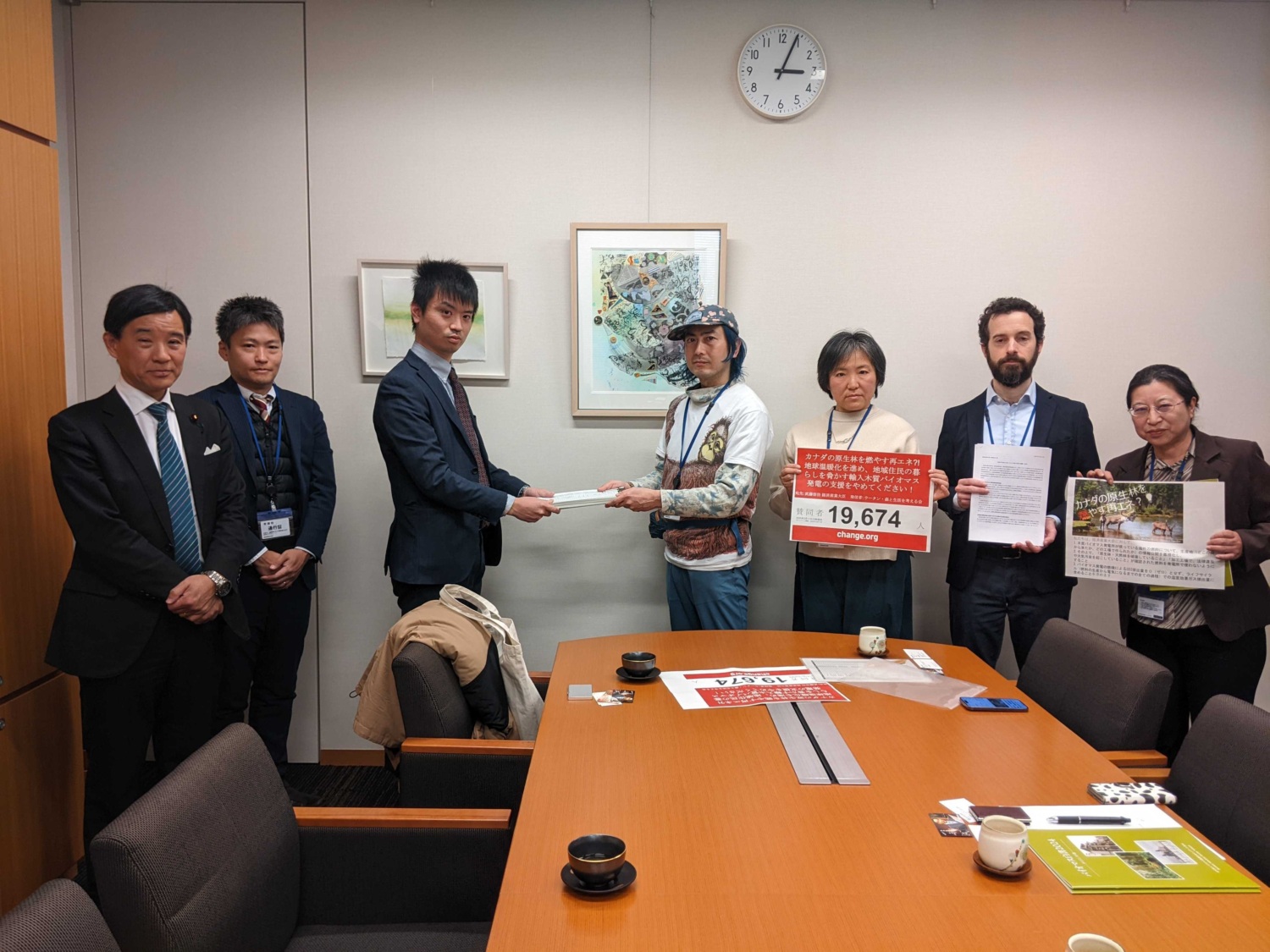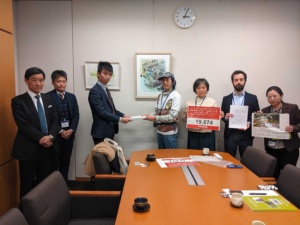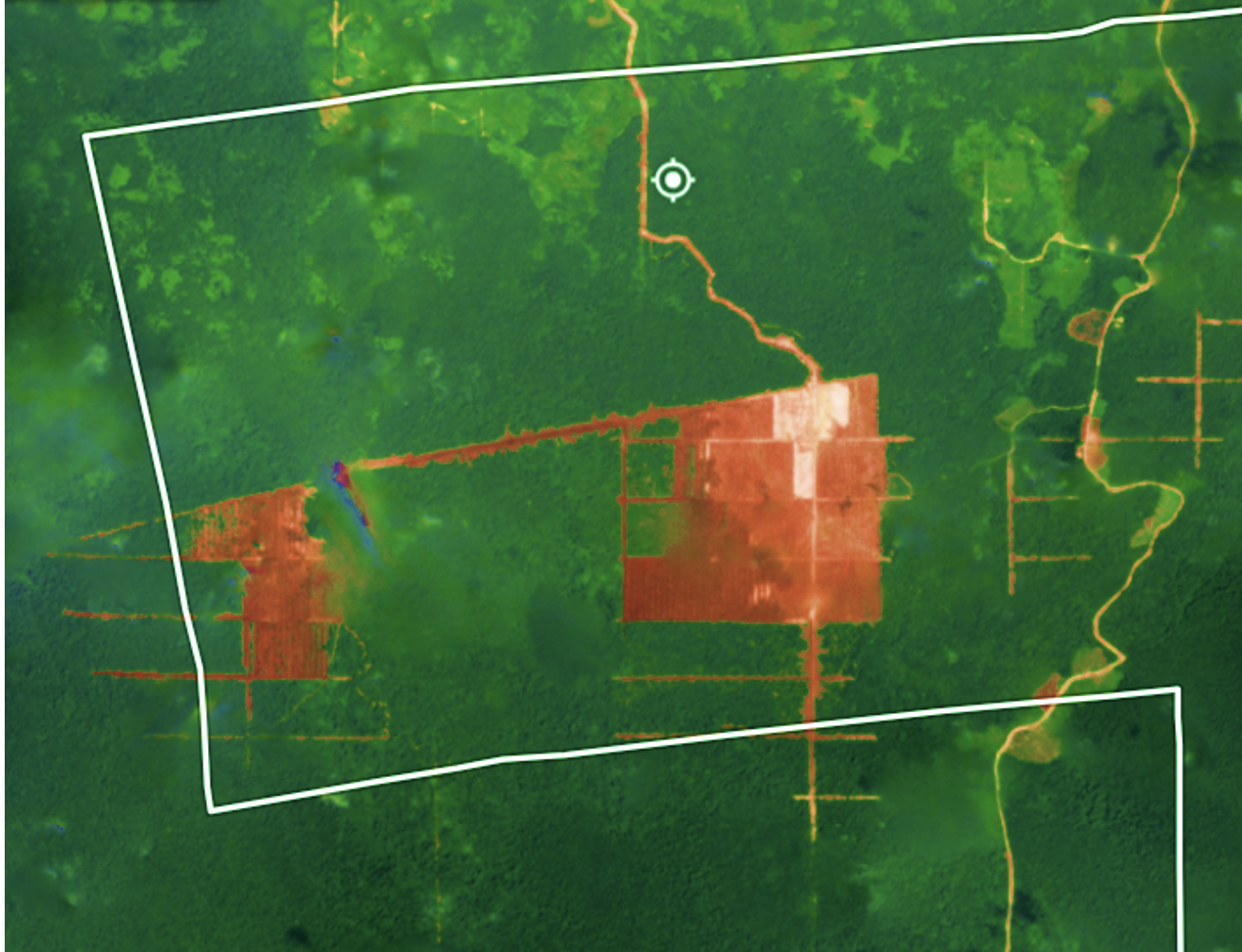
Civil society calls on Japanese government to restrict biomass subsidies
Groups call for a stop to imported wood biomass
On February 11, 2025, Mighty Earth and GEF delivered a letter to Japan’s METI (Ministry of Economy, Trade and Industry) calling for reforms to Japan’s Feed-In Tariff (FIT). This letter is signed by 33 groups who are alarmed by the lack of restrictions on imported fuel in Japan as the North American wood biomass industry rapidly expands. In addition, HUTAN group delivered a petition with nearly 20,000 signatures asking for a stop to imported wood biomass power that contributes to global warming and harms the lives of local residents.

Currently, the FIT does not have meaningful restrictions on what type of wood can be imported and combusted. Furthermore, the FIT does not have sufficient requirements to exclude the use of fuels that destroy primary and natural forests, cause legal violations and air pollution at processing plants, or harm local communities.
We ask that the Ministry of Economy, Trade and Industry, which has jurisdiction over the biomass energy policies, adopt the following standards:
- Disallow the import of fuels that are found to be destroying primary and natural forests. For this purpose, we must require biomass power generators to confirm that fuel they import does not originate in primary or natural forest including unused wood, waste wood, and sawmill residue in order to ensure that it does not contribute to forest degradation or conversion of natural forest to plantations.
- Disallow the import of fuels that are found to be causing air pollution at processing plants in violation with the Clean Air Act (in the US) or other laws. Disallow the import of fuels that are found to be harming communities. For this purpose, we must require biomass power generators to confirm that imported fuel does not contribute to air pollution or violate local or national environmental laws. Sustainability certifications should not be accepted as evidence of legality or sustainable practice.
- Require companies to count and disclose all CO2 emissions from the full lifecycle of biomass power and other uses of biomass in accordance with the GHG Protocol.20
- Clarify an enforcement mechanism for responding to illegal activities and impose penalties on companies who violate the above-listed regulations.
- Apply the commitments outlined above to all wood biomass imports, including under the FIT, in addition to other uses of wood biomass, such as coal co-firing and use in industrial boilers.
- Apply the commitments outlined above to existing power generation plants as well as new or expanded power plants.
Read the Letter to METI
METI-Sign-On-Letter_12Feb2025Read the Japanese Translation
20250212北米団体METIレター仮訳
Precedent for Biomass Policy Reform
In January of 2025, South Korea ended renewable energy subsidies for new and state-owned coal and biomass cofired power plants. In doing so, South Korea has proactively limited their dependence on woody biomass and mitigated associated harms to the climate and forests globally. Although South Korea is still subsidizing domestic biomass and has room to improve phase-out timelines, policies like this will reduce demand for biomass in places like Southeast Asia, Canada, and the US. Japan and other countries have an opportunity to use the momentum from the precedent set by South Korea to follow suit.


